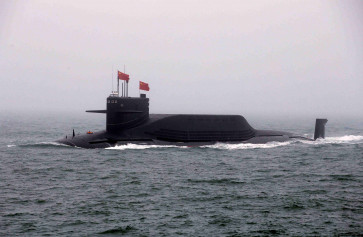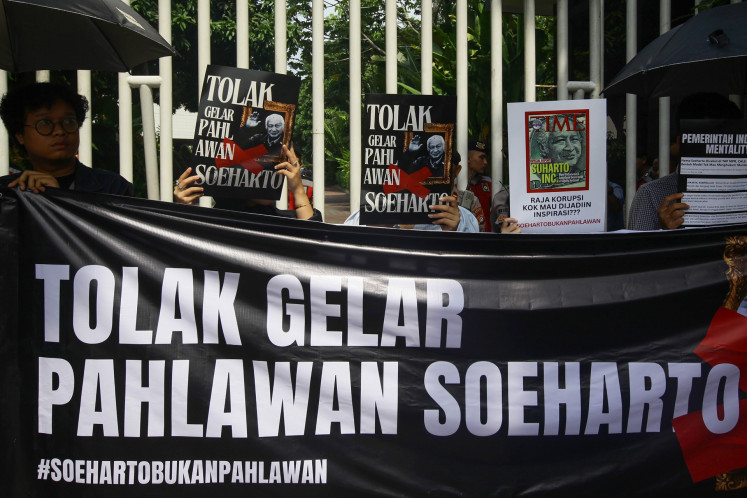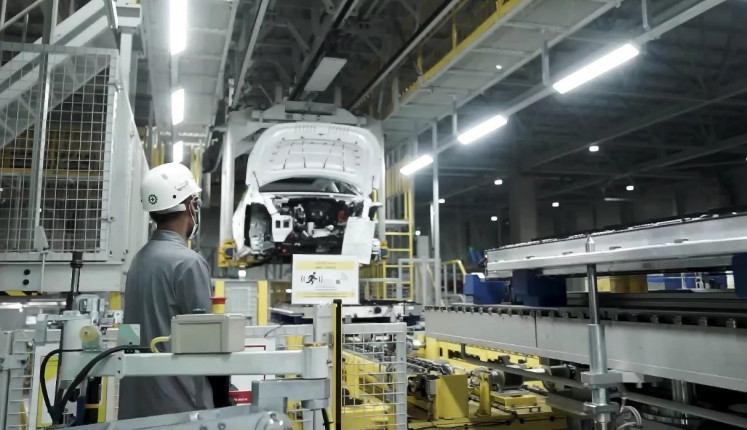Popular Reads
Top Results
Can't find what you're looking for?
View all search resultsPopular Reads
Top Results
Can't find what you're looking for?
View all search resultsASEAN does matter, and has achieved a lot
In August 2018, the Centre for Strategic and International Studies (CSIS) hosted the launch event for Marty Natalegawa’s book, Does ASEAN Matter? A View from Within. I was privileged to be the single discussant of the book, and a wider audience of the experts and observers of ASEAN present at the event shared their thoughts. As designed, we had a very good dialogue and exchange of views. My comments, then, were limited to certain issues, hence, I would like to add a few more in this article.First, the tone and style of Pak Marty’s excellent book attest to his qualities as a person, scholar and practitioner. His prose is outstanding, which shows his mastery of English. He is very clear in his analyses on ASEAN, as he sees it amid differing views others have on the problems faced by ASEAN, but as a whole he believes ASEAN has achieved a lot.
Change text size
Gift Premium Articles
to Anyone
I
n August 2018, the Centre for Strategic and International Studies (CSIS) hosted the launch event for Marty Natalegawa’s book, Does ASEAN Matter? A View from Within.
I was privileged to be the single discussant of the book, and a wider audience of the experts and observers of ASEAN present at the event shared their thoughts. As designed, we had a very good dialogue and exchange of views. My comments, then, were limited to certain issues, hence, I would like to add a few more in this article.
First, the tone and style of Pak Marty’s excellent book attest to his qualities as a person, scholar and practitioner. His prose is outstanding, which shows his mastery of English. He is very clear in his analyses on ASEAN, as he sees it amid differing views others have on the problems faced by ASEAN, but as a whole he believes ASEAN has achieved a lot.
Read also: 'Does ASEAN Matter?': Marty Natalegawa's personal notes
His outlook on the future of ASEAN is cautiously optimistic, while new and important challenges are looming. He outlines the achievements of ASEAN, in particular in overcoming its history as the “Balkans of East Asia” thanks to its ability to prevent tensions, conflicts and wars among its members. More than that, Marty is very happy with ASEAN developing into a community, so its pursuit of peace and development of the region can be achieved.
Some parts of the book are very informative in enlightening readers about his former role as Indonesian foreign minister, as the Indonesian representative to the United Nations and during Indonesia’s chairmanship of ASEAN in the period of 2011-2012. Among other things, the book touches on the settlement of the conflict between Cambodia and Thailand over the Vihear Temple, including the debate at the UN Security Council. Another case is the rescheduling of Myanmar’s chairmanship of ASEAN as a newly joined member. These issues are important to show how ASEAN has worked beyond the principles of consensus and noninterference in member’s domestic affairs.
In addition, Marty highlighted three cases, in which the ASEAN principle of non-interference was more widely interpreted. One was Indonesia’s request to some ASEAN members to send troops for peacekeeping in the resolution of Aceh’s conflict under the auspices of the European Union. Another was for the post-referendum of Timor-Leste under the UN.
Second and third are the roles of Indonesia and Malaysia as interlocutors in the Southern Philippines struggle to deal with the Moro National Liberation Front and the Moro Islamic Liberation Front at the request of the Philippine government. The non-interference principle has been upheld in relations among ASEAN members. However, there have been exceptions, when consensus among members was reached that certain flexibility was important for ASEAN members to help each other in overcoming domestic challenges. Here the consent of the country concerned is very important to show that every member is at ease with the need for such a decision.
Marty has shown how the consensus principle of decision-making can be adjusted if needed, and that stronger future relations among ASEAN members can make it more comfortable to do so. Those are the important points Marty describes in his book. They are also important for the development of relations among the many subdivisions of ASEAN, such as the Coordinating Council, the three Working Councils on political security, economic and sociocultural affairs and the relations between the permanent representatives to ASEAN and the Secretariat General.
Future adjustments in the process of decision-making are possible if needed as if the relations among ASEAN members are strong and open. The idea of the Secretariat General becoming a supranational entity is less important when there is a lack of harmony among the members, thus, a so-called supra-national secretariat would not be relevant. That does not mean that the Secretariat General and its funding arrangements cannot be improved.
Marty believes a people-centered ASEAN is a game-changer. It is already operational in the Economic Community building, where people benefit from this new development.
However, it should also be possible to work out in the field of security. For that to happen, there is dire need for more frequent and integrated relations among the leaders and among the foreign ministers. The leaders should at least have four meetings annually among themselves, and there should be eight meetings of the foreign ministers annually to establish effective cooperation. The gatherings could take the form of retreat or informal business meetings in addition to the Summitry or ministers’ meetings.
What is also important for Marty with regard to a people-centered ASEAN is the role of the nongovernmental groupings: politicians, businesses, think tanks and universities, youths, students and CSOs/NGOs, which still have few opportunities to provide input or convey their thoughts and proposals to the government, even though their presence is mentioned in the ASEAN Charter.
Pak Marty has given us a lot of thoughts and shares his experience, and now it should be the people themselves to provide their governments with their thoughts and ideas and in doing so create a people-centered ASEAN.
***
The writer is the vice chair of the CSIS Foundation’s board of trustees.











